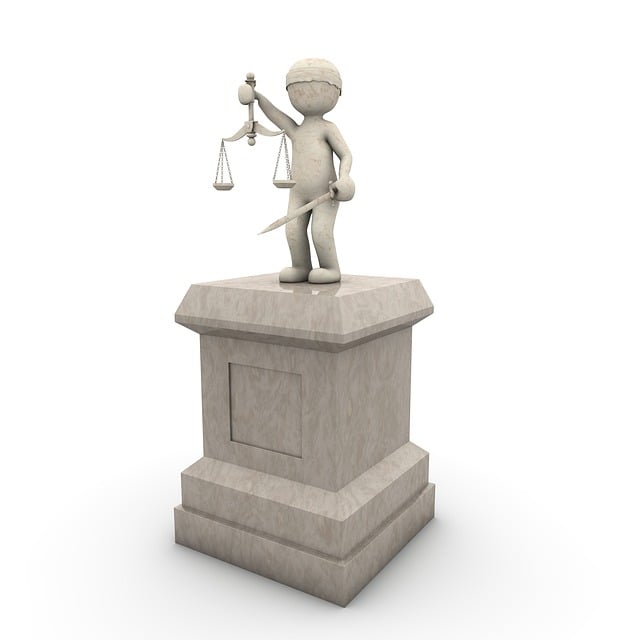RF Regulatory Agency (RFRA) investigations protect wireless communication integrity by probing licensing issues, interference complaints, and white-collar crimes. Legal Representation in Administrative Hearings is crucial during these inquiries to ensure business rights are protected. Skilled attorneys offer expert guidance on compliance, strategic defenses, and tailored strategies for navigating complex cases. Formal notices initiate the process, requiring full cooperation while maintaining legal rights. Experienced counsel can significantly influence outcomes, ensuring fairness and protecting rights throughout investigations and hearings.
“RF Regulatory Agency Investigations: Navigating the Process with Legal Expertise
Regulatory bodies play a crucial role in ensuring wireless technology complies with safety standards. This article demystifies RF (Radio Frequency) regulatory investigations, offering insights into each critical phase. From understanding the initial triggers to preparing for hearings and post-outcome strategies, it’s essential to grasp the implications.
One key aspect that cannot be overstated is the role of Legal Representation in Administrative Hearings. Understanding this can significantly impact the outcome, ensuring your rights are protected throughout.”
- Understanding RF Regulatory Agency Investigations
- When an Investigation Begins: Initial Steps and Notifications
- The Role of Legal Representation in Administrative Hearings
- Preparing for Your Hearing: Evidence and Argument Strategy
- Post-Hearing Processes and Potential Outcomes
Understanding RF Regulatory Agency Investigations

RF Regulatory Agency Investigations are crucial processes that safeguard the integrity of wireless communication systems. These agencies, like the Federal Communications Commission (FCC) in the US, conduct thorough inquiries into potential violations of radio frequency (RF) laws and regulations. Such investigations can range from licensing issues to interference complaints and complex white collar crimes. Understanding the scope and procedures involved is essential for any respective business navigating this regulatory landscape.
When facing an RF Regulatory Agency Investigation, having robust Legal Representation in Administrative Hearings becomes paramount. Skilled attorneys specializing in these matters can help craft a winning challenging defense verdict, ensuring that your respective business’ rights are protected. With their expertise, they navigate the intricate legal terrain, providing guidance on compliance and strategic defense mechanisms. Moreover, experience in handling white collar and economic crimes cases is invaluable, enabling legal representatives to offer tailored strategies for navigating such complex investigations.
When an Investigation Begins: Initial Steps and Notifications

When an RF Regulatory Agency investigation begins, it’s crucial to understand the initial steps and notifications involved. Upon initiation, the agency will typically serve a formal notice on all parties involved, including the company or individual under scrutiny. This notification outlines the scope of the inquiry, potential violations alleged, and the rights of those being investigated. It’s paramount to secure legal representation in administrative hearings during this phase to ensure compliance with regulatory requirements and protect against any missteps that could exacerbate the situation.
The process often involves a series of interviews, document production requests, and site visits. Companies or individuals should be prepared to cooperate fully while also safeguarding their interests. Engaging experienced legal counsel who can navigate complex philanthropic and political communities dynamics and achieve extraordinary results is invaluable. This proactive approach can significantly influence the outcome, ensuring that corporate and individual clients alike are fairly represented throughout the investigation.
The Role of Legal Representation in Administrative Hearings

In RF Regulatory Agency investigations, Legal Representation in Administrative Hearings plays a pivotal role. Effective legal counsel is essential to navigate complex administrative processes and protect an individual’s or company’s interests. Skilled attorneys can help interpret intricate regulations, assemble robust defenses, and present compelling arguments before adjudicators. This representation ensures that the rights of respondents are upheld, facilitating a fair and just outcome.
Having competent legal representation can significantly impact the course of an investigation. It enables defendants to challenge allegations, provide exculpatory evidence, and advocate for alternative resolutions. In some cases, successful legal strategies have led to the complete dismissal of all charges, demonstrating the profound importance of professional advocacy in these proceedings. This support is particularly crucial for navigating the nuances of regulatory law and communicating effectively with both the RF Regulatory Agency and the broader philanthropic and political communities.
Preparing for Your Hearing: Evidence and Argument Strategy

Preparing for an RF Regulatory Agency hearing is a critical step, especially given the high-stakes nature of many telecommunications disputes. Legal representation in administrative hearings plays a pivotal role in guiding corporate and individual clients through this complex process. The strategy begins with gathering robust evidence that supports your position. This includes meticulous documentation, technical reports, and expert opinions to counter potential opposition arguments.
A well-prepared argument strategy should address anticipatory issues, focusing on both the legal and factual aspects of the case. Your legal counsel should craft a compelling narrative that highlights the unique circumstances of the case and aligns with the regulatory framework. This proactive approach ensures that you are not only responsive but also proactive in presenting your case, which can significantly impact the outcome, particularly within the dynamic landscape of philanthropic and political communities where such high-stakes cases often arise.
Post-Hearing Processes and Potential Outcomes

After an RF Regulatory Agency (RFRA) hearing, various post-hearing processes come into play, shaping the future of the respective business under investigation. During this phase, both sides—the agency and the accused—have opportunities to present additional evidence, arguments, or legal interpretations that could influence the outcome. This is where legal representation in administrative hearings becomes pivotal; a skilled attorney can navigate these complex procedures, ensuring their client’s rights are protected.
The potential outcomes of these investigations are far-reaching, ranging from severe penalties and fines to complete dismissal of all charges. Achieving extraordinary results often depends on the quality of legal counsel and strategic planning. A successful defense strategy not only protects businesses from regulatory action but also demonstrates compliance and good faith efforts, which can be crucial in mitigating future risks.
RF Regulatory Agency investigations can be complex, but understanding the process is key to a successful outcome. From initial notifications to post-hearing processes, each step requires meticulous preparation. One critical aspect often overlooked is the role of legal representation during administrative hearings. Engaging qualified counsel specializing in RF regulations can significantly enhance your advocacy, ensuring your rights are protected and your interests are robustly represented. By employing strategic evidence presentation and argumentation, the right legal team can navigate this intricate landscape, aiming for favorable outcomes and minimizing potential penalties.






